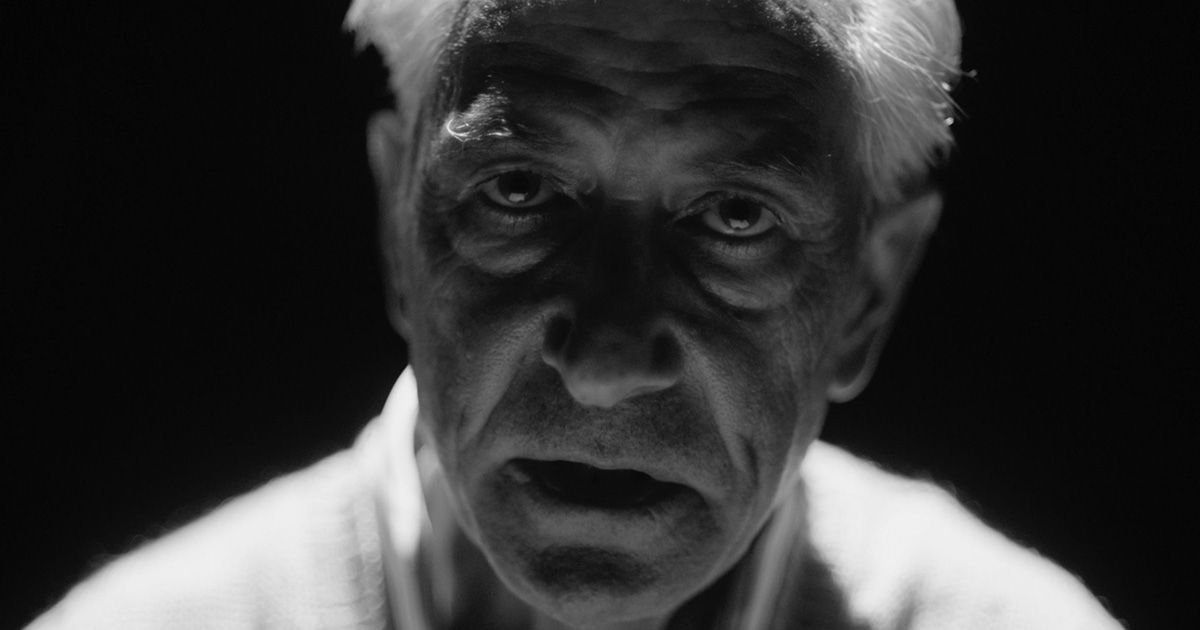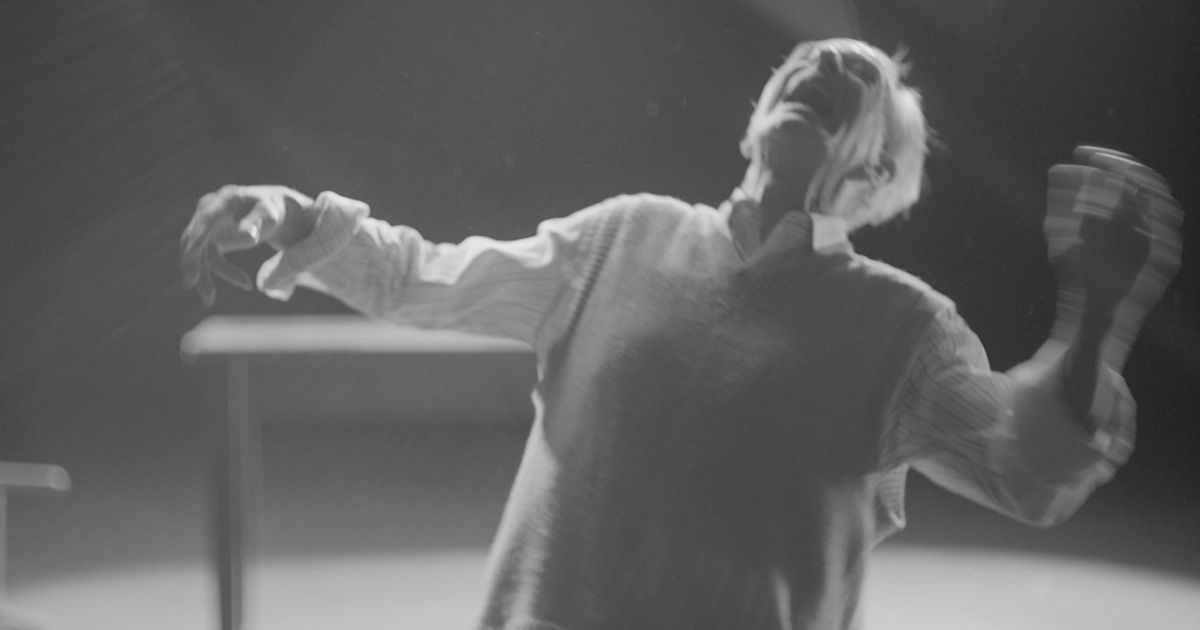David Strathairn astounds in a tour de force adaptation of his harrowing one-man play. Remember This tells the true story of Holocaust witness Jan Karski, a renowned Georgetown professor who served as a critical member of the Polish resistance movement during World War II. The film is shot in stark black and white on a sound stage. A table and two chairs serve as the only props. Strathairn brilliantly portrays every character in a devastating account of survival, courage, and unconscionable suffering. Denial and willful indifference allowed a genocidal slaughter unparalleled in human history.
Strathairn takes off his jacket, sits on the table, and directly addresses the camera. He decries "a world in peril." We "see millions denied justice" for simply being who they are. He walks sternly forward. What can we do? Do we have a responsibility? At that moment, his voice, stature, and demeanor changes.
The Journey Begins
Karski, in his heavy Polish accent, becomes the narrator. He kept dark truths to himself, unspoken for decades. Director Claude Lanzmann interviewed him for the 1985 documentary Shoah. Strathairn turns to watch the real Karski crying on projected footage behind him. The journey begins.
Karski recollects growing up poor and Catholic in Poland. He saw antisemitism fester from an early age. Boys would throw dead rats at the Jewish students. His mother pushed him to study languages and develop a keen memory. Karski feels a sense of accomplishment at employment in the diplomatic corp. That changes when he's drafted into the army.
A Brutal Odyssey
Strathairn mesmerizes as Karski is shelled and then captured during the Nazi blitzkrieg. Sound effects, shadows, and darkness aid his chaotic emoting. He transforms into Russians, Germans, and Karski again as he desperately avoids labor camps. His ingenuity works and is recognized by the Polish Underground. Karski's given a new identity and orders. Move throughout the country, document what is happening, and then provide that information to the Allies. Karski embarks on a brutal, gut-wrenching odyssey through the Jewish Ghetto in Warsaw, Nazi extermination camps, and an eventual briefing to FDR at the White House. He was nearly tortured to death and had multiple escapes on a mission to record the awful truth.
Strathairn's performance is cleverly enhanced during pivotal moments. Remember This is shot in a continuous take that never cuts away from the action. Jeff Hutchens and Derek Goldman, who co-wrote and directed the play, are sublime in their feature debut. They use stagecraft, sound, and lighting cues with different camera angles to shift focus. Strathairn throws himself violently to simulate his savage Nazi beatings while captured. This takes place under a spotlight as he also portrays his abusers. You never leave the table or two chairs but are transported to a prison cell. The same methodology occurs when Karski sees the death camps. He has no frame of reference to process the abject horror before him.
A Moral Responsibility
The message is clear. Allied leaders, their governments, intellectuals, and a wide swath of common people were keenly aware of German atrocities. Karski spoke to many who lied and claimed ignorance of the Holocaust. He laments that "governments have no soul, but people do." We cannot be indifferent to evil taking place before our eyes. There is a moral responsibility to act. Strathairn is beyond exceptional here.
Remember This is a production of Sobremesa Media. It will have a limited theatrical release on January 27th from Abramorama and PBS Great Performances.



